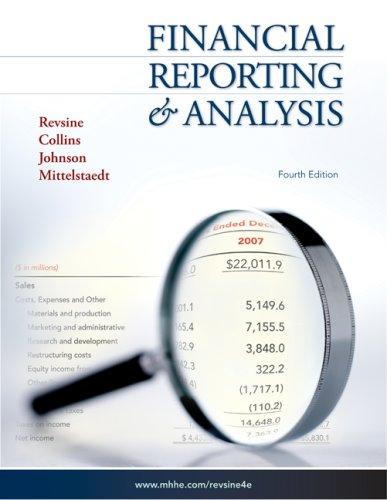Groupe Casino is a French multinational company that operates more than 9,000 multiformat retail storeshypermarkets, supermarkets, discount
Question:
Groupe Casino is a French multinational company that operates more than 9,000 multiformat retail stores—hypermarkets, supermarkets, discount stores, convenience stores, and restaurants—
throughout the world. In January 2005, Casino issued €600 million of undated deeply subordinated fixed-to-CMS-floating-rate notes at a price of 101. The offering circular described certain aspects of the notes as follows:
Deeply Subordinated Obligations The Notes are deeply subordinated obligations of the Issuer and are the most junior debt instruments of the Issuer, subordinated to and ranking behind the claims of all other unsubordinated and subordinated creditors of the Issuer.
Undated Securities The Notes are undated securities, with no specified maturity date. The Issuer is under no obligation to redeem the Notes at any time.
The Noteholders have no right to require redemption of the Notes, except if a judgment is issued for the judicial liquidation (liquidation judiciary) of the Issuer or, following an order of redressement judiciaries', the sale of the whole of the business (cession totaled eEnterprise) of the Issuer, or in the event of the voluntary dissolution of the Issuer or if the Issuer is liquidated for / any other reason.
Interest Interruption The Issuer has the option to decide not to pay interest on the Notes on any Interest Payment Date if, during the 12-months period preceding such Interest Payment Date, it has not paid or declared any dividend on its Equity Securities and provided it has not made, during any such period, any payments on (including inter alia by way of redemption, purchase or redemption of) any Equity Securities. The interest payment provisions of the Notes are non-cumulative.
Accordingly, any interest not paid on the Notes as a result of the valid exercise by the Issuer of such option will be forfeited and accordingly will no longer be due and payable by the Issuer.
No Voting Rights The Notes are nonvoting.
No Prior Market for the Notes; Resale Restrictions There is no existing market for the Notes, and there can be no assurance that any market will develop for the Notes or that holders of the Notes will be able to sell their Notes in the secondary market.
Interest Rate The coupon on the Notes for each Floating Rate Interest Period is linked to the 10-year Constant Maturity Swap (CMS 10), the annual rate for.euro interest rate swap transactions with a maturity of 10 years.
The CMS 10 is a variable rate and as such is not pre-defined for the lifespan of the Notes;
conversely it allows investors to follow market changes with an instrument reflecting changes in the levels of yields. Higher rates mean a higher coupon and lower rates mean a lower coupon.
In summary, the notes:
• Are Casino's undated perpetual obligations in that they have no maturity date and the lender (investor) cannot force redemption.
• Pay interest at fixed and floating rates, but Casino may “interrupt” interest payments at any time and for any reason and the lender has no claim to interrupted interest payments.
• Do not confer voting rights to the investor, nor are they convertible into shares of common or preferred stock of Casino or any other company.
Required:
1. Casino management intends to treat the notes as equity instruments for financial reporting purposes in accordance with International Financial Reporting Standards (IFRS).
What specific guidance do IFRS provide that helps accountants and auditors distinguish between liabilities and equities?
2. Do you concur with management's decision to treat the notes as equity instruments? Why?
3. Suppose the notes are issued on January 1, 2005, that the first year’s interest rate is 5%, and that interest is paid on December 31 of each year. Prepare the journal entries Casino would use to record
(a) issuance of the notes on January 1, 2005,
(b) interest expense for the year, and
(c) the cash interest payment on December 31, 2005. Income tax considerations may be ignored. Use an 8% interest rate for these journal entries.
4, The notes were issued at a price of 101, which is a slight premium over the face value.
What “red flags” does this issue price raise?
Step by Step Answer:






